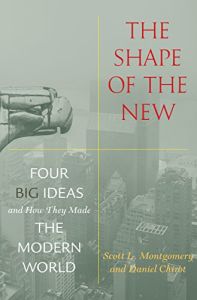Join getAbstract to access the summary!

Join getAbstract to access the summary!
Scott L. Montgomery and Daniel Chirot
The Shape of the New
Four Big Ideas and How They Made the Modern World
Princeton UP, 2015
What's inside?
Adam Smith and other thinkers of the Enlightenment are the architects of the modern world.
Recommendation
University of Washington professors Scott L. Montgomery and Daniel Chirot trace the roots of the modern world’s political and economic philosophies. They analyze the capitalist theories of Adam Smith, the capitalist critiques of Karl Marx, the evolutionary theories of Charles Darwin, and the model of modern democracy forged by Thomas Jefferson and Alexander Hamilton. They discuss the reactionary movements – including fascism and religious fundamentalism – that fought to suppress Enlightenment ideals. The authors present this complex material at a brisk pace, deftly summarizing hundreds of years of Western thought. While always politically neutral, getAbstract recommends their absorbing cultural overview to policy makers, international-development executives, economic planners, NGO officials, and teachers or students of history, economics or politics.
Summary
About the Authors
Scott L. Montgomery teaches at the Jackson School of International Studies at the University of Washington where Daniel Chirot is a professor of Russian and Eurasian studies. Chirot, whose books include Why Not Kill Them All: The Logic and Prevent of Mass Political Murder, is founding editor of the journal East European Politics and Societies. Montgomery’s other books include Does Science Need a Global Language?: English and the Future of Research.

















Comment on this summary